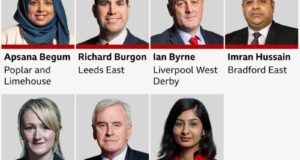 David Cameron has said it is his “firm conviction” that Britain should extend itsairstrikes against Islamic State targets from Iraq to Syria, as he announced plans to set out a comprehensive strategy to win a Commons vote.
David Cameron has said it is his “firm conviction” that Britain should extend itsairstrikes against Islamic State targets from Iraq to Syria, as he announced plans to set out a comprehensive strategy to win a Commons vote.
In a statement to parliament on the G20 summit and the Paris attacks, the prime minister said the events in France had shown the “direct and growing” threat to the UK from Isis.
Cameron told MPs: “My firm conviction is that we need to act against Isil in Syria. There is a compelling case for doing so.”
G20: Barack Obama and Vladimir Putin agree to Syrian-led transition
On Monday he indicated that he was wary of tabling a vote to extend the RAF’s involvement in coalition airstrikes from Iraq to Syria. In an interview on BBC Radio 4’s Today programme, Cameron said a failure to win MPs’ support for an extension of UK military action would damage the UK.
But the scale of the attacks in Paris and the cross-border planning has persuaded him that Britain should join the coalition led by the US and France in hitting Isis targets in Syria. The prime minister will set out his thinking by the end of the month in a formal response to a recent report by the Commons foreign affairs select committee, which said the government had failed to make the case for an extension of the strikes.
Cameron said: “Isil is not just present in Iraq. It operates across the border in Syria, a border that is meaningless to it because as far as Isil is concerned this is all one space. It is in Syria, in Raqqa, that Isil has its headquarters. It is from Raqqa that some of the main threats against this country are planned and orchestrated. Raqqa, if you like, is the head of the snake.”
He said Britain was helping the allies by providing surveillance and logistical support for the strikes over Syria. But he added: “I believe, as I have said many times before, we should be doing more. We face a direct and growing threat to our country and we need to deal with it not just in Iraq but in Syria, too. I have always said there is a strong case for us doing so.
“Our allies are asking us to do this and the case for doing so has only grown stronger after the Paris attacks. We cannot expect, we should not expect, others to carry the burdens and the risks of protecting our country.”
The prime minister acknowledged the concerns raised in the committee’s report. He said he would make it clear what difference UK action would make, address concerns that they would worsen matters, assess the impact of the Russian military action in Syria and how any UK military involvement would fit into a comprehensive strategy for dealing with Isis, and set out a diplomatic strategy for bringing an end to the war in Syria.
Jeremy Corbyn calls for political solution in Syria
Cameron said he believed these questions could be answered. He said: “There is a compelling case for [extending the airstrikes]. It is for the government, I accept, to make that case to this house and to the country. I can therefore announce that as a first step I will respond personally to the report of the foreign affairs select committee. I will set out our comprehensive strategy for dealing with Isil, our vision for a more stable and peaceful Middle East.
“This strategy, in my view, should include taking action in Syria. I hope that in setting out the arguments in this way I can build support right across this house for the action that I believe is necessary to take.”
Jeremy Corbyn said any extension of the airstrikes would have to be approved by the UN security council. The Labour leader believes that airstrikes against Isis should be part of a comprehensive settlement for Syria involving the major powers with permanent seats on the council.
Government sources indicated that the prime minister was unlikely to spend too much time trying to persuade Corbyn because No 10 believes a UN security council resolution is unnecessary. He will instead focus on winning the support of Labour critics of Corbyn.
 Weekly Bangla Mirror | Bangla Mirror, Bangladeshi news in UK, bangla mirror news
Weekly Bangla Mirror | Bangla Mirror, Bangladeshi news in UK, bangla mirror news







